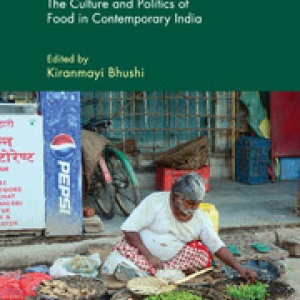
The book “Farm to Fingers: The culture and politics of food in contemporary India”, edited by Kiranmayi Bhushi, explores diverse viewpoints on current food issues in India, including food security, global policies, and the impact of food bloggers.
Publisher’s summary
This book studies food practices in contemporary India by situating them in their political, economic and socio-cultural contexts. Widespread in scope, it explores the use of food for exercising power, as a marker of difference and as a potent symbol of expression of identity; studies how food practices are intimately connected to the corporeal self and the fashioning of the self; and examines food safety and its nutritional aspects and notions of hygiene and edibility that are culturally specific. The book looks closely at the political and economic institutions that are responsible for the production and distribution of food, and the role of the state and global policies that influence agrarian policies at home. It discusses meat-eating in India; fermented food from North-East India and how it does not fall within the representation of 'Indian' food; the ideas of health and food safety that inform the making of Bengali sweets; the growing role of fast-food eateries and blog-writing as middle-class identity projects; the nature of colonial discourse on what is an adequate diet for famine victims; who should grow food; and the importance of the concept of food sovereignty.
Reference
Bhushi, K. (ed.), 2018. Farm to Fingers: The culture and politics of food in contemporary India. Cambridge University Press, Cambridge.
For more details, see here. See also the Foodsource resource How do food systems link multiple issues and concerns?







Post a new comment »